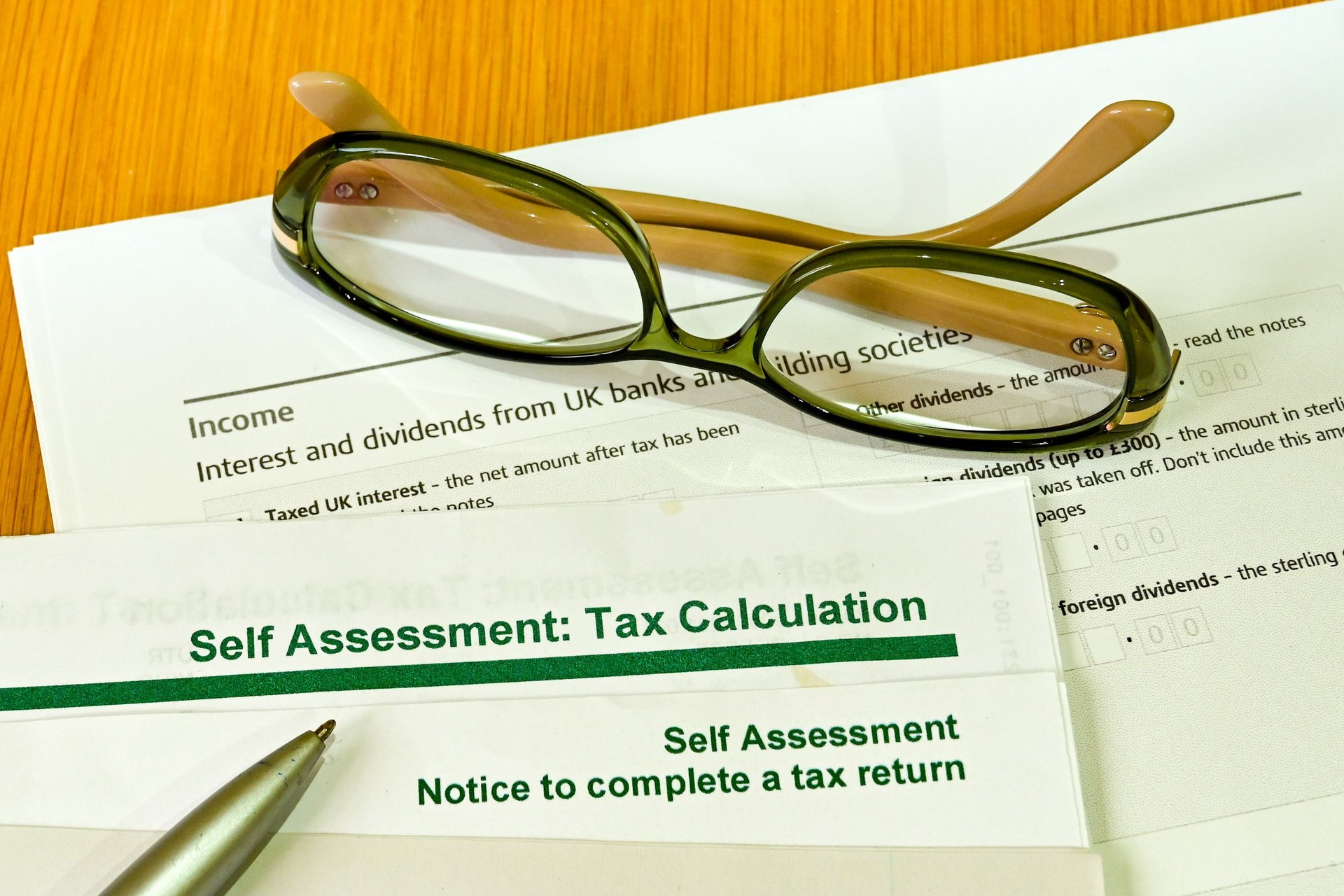Spotlight on Reporting Requirements
What Are the Reporting Requirements for Non-Resident Landlords Living in Dubai Who Own UK Property?
LANDLORDSNON-UK RESIDENTSADVICETAX REPORTING
The Tax Faculty
3/7/20255 min read


For non-resident landlords living in Dubai who own property in the UK, navigating the complexities of tax obligations and reporting requirements is crucial. The United Kingdom's tax regulations can seem daunting, especially for those residing thousands of miles away.
This guide provides an overview of the essential reporting and tax responsibilities you need to be aware of to both ensure compliance and optimise your financial returns.
Understanding Non-Resident Landlord Scheme (NRLS)
The Non-Resident Landlord Scheme (NRLS) is a system for taxing the UK rental income of non-resident landlords. As a landlord living in Dubai and renting out property in the UK, you fall under this scheme. The NRLS requires that tax be deducted at the basic rate from any rent received, unless the landlord has successfully applied to receive the rent with no tax deducted
To receive your rental income without tax deduction at source, you must apply to HM Revenue and Customs (HMRC) for approval. You can do this by completing form NRL1i if you are an individual landlord, or NRL2i and NRL3i for companies and trusts respectively. Once approved, HMRC will notify your letting agent or tenant not to deduct tax when they pay the rent.
Tax Return Obligations
Even if you have received approval to get your rental income without deduction, you are still required to file a UK Self-Assessment tax return. This filing should reflect your rental income and allows you to claim allowable expenses. There are a number of key points to consider when filing tax returns:
• Filing Deadline: The tax year in the UK runs from April 6th to April 5th, and the deadline for submitting paper tax returns is October 31st, while online submissions must be completed by January 31st.
• Allowable Expenses: You can deduct costs such as property maintenance, management fees, and interest on loans used to buy the property, reducing your taxable income.
• Capital Gains Tax (CGT): If you sell your UK property, as a non-resident, you are also subject to CGT on gains made. Reporting and paying CGT must be done within 60 days of the sale via a Non-Resident Capital Gains Tax return.
It is also imperative that landlords maintain accurate and detailed records. This will help to facilitate smooth tax return processing. They should ensure that they have access to the following documents: rental agreements, bank statements showing rent received, receipts for allowable expenses and records of periods when the property was vacant.

special cases and examples to consider
Consideration 1: Joint Ownership
If a UK property is owned jointly by non-residents, or a mix of residents and non-residents, the rules can get complex. Each owner is treated as receiving a share of the income and has the same tax obligations proportionate to their ownership share. Joint owners must individually register for the NRLS and can separately apply to receive their rental income without tax deduction.
Example:
Ahmed and Mariam, a married couple living in Dubai, jointly own a rental property in the UK. Both must individually apply to HMRC to receive their rental income without tax being deducted at source. They also need to file separate UK Self-Assessment tax returns, declaring their share of the income and claiming their proportion of allowable expenses.
Consideration 2: Renting to a Family Member at a Reduced Rate
Renting property to a family member at less than the market rate can affect the tax treatment of the rental income. In such cases, expenses can only be claimed up to the level of the rent received, and any loss cannot be carried over to offset future rental profits.
Example:
Sara, residing in Dubai, owns a flat in London that she rents to her brother for a nominal amount just to cover the mortgage. Sara can only claim expenses up to the amount of rent received, and she cannot claim a tax reduction for any excess expenses incurred.
Consideration 3: Changes in Residency Status
Changes in the landlord’s residency status during the ownership period can complicate the tax situation, especially regarding Capital Gains Tax (CGT) on the sale of the property.
Example:
John, originally from the UK, moved to Dubai and rented out his UK home. After five years in Dubai, he decides to return to the UK. This change in residency status affects how his rental income and eventual sale of the property are taxed, with specific rules applying to the period before and after his move.
Consideration 4: Property Development and Trading
If a non-resident landlord gets involved in property development or trading in the UK, this might not be covered under typical rental income rules and could be treated as trading income, which has different tax implications.
Example:
Noor, a Dubai-based investor, purchases derelict properties in the UK, renovates them, and sells them at a profit. Her activities are considered as trading, so she's subject to Income Tax on profits rather than just CGT, and her tax obligations differ significantly from those of standard rental income.
Consideration 5: Use of Property for Business
Using the property partially or entirely for business purposes, such as holiday lettings, can attract different tax rules.
Example:
Hassan owns a house in Scotland that he advertises on platforms like Airbnb. This qualifies as a Furnished Holiday Letting, which has specific conditions for tax purposes, including eligibility for Capital Allowances and certain reliefs from CGT.
These special cases highlight the need for non-resident landlords to understand the various scenarios that can affect their tax liabilities. It is often wise to consult with a trusted tax advisor who can provide guidance tailored to individual circumstances and ensure compliance with UK tax laws.
Most Commonly Asked Questions






Q: Can I manage my UK properties remotely from Dubai?
A: Yes, it is possible to manage your properties remotely, though many non-resident landlords choose to use a UK-based property management service to handle day-to-day responsibilities and ensure compliance with local laws and NRLS requirements.
Q: What if I don't comply with NRLS?
A: Non-compliance can result in penalties including fines and interest on unpaid taxes. It is crucial to adhere to NRLS regulations and complete all required filings on time.
Q: How do exchange rates affect my rental income?
A: Exchange rate fluctuations can affect the amount of rent you receive in terms of your local currency (AED). It's important to consider this in your financial planning.
Final Thoughts
Being a non-resident landlord owning property in the UK while living in Dubai involves several responsibilities, primarily revolving around tax filing and compliance under the NRLS. By understanding and adhering to these requirements, you can ensure legal compliance and optimise your investment returns. For further assistance, consider consulting a tax professional who specialises in international property tax law.
For tailored advice in all aspects of property law and professional services, visit our website at Dubai Tax Experts
Dubai Tax Experts
by
The Tax Faculty LLP
Call us on 0800 0016 878 for a free consultation
(Non-UK callers may need to call +44 207 101 3845 if you cannot connect to our 0800 number)
Copyright © 2024 The Tax Faculty LLP - All Rights Reserved
